A faction’s loss is Albanese’s gain in IBAC drama
Daniel Andrews has intimate knowledge of the way forces behind disgraced Labor MP Anthony Byrne conducted themselves.
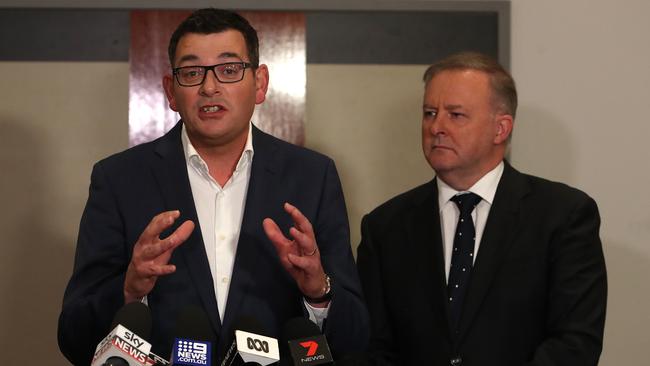
It’s been known for more than 20 years that Byrne was a branch stacker and factional war lord after he wandered across the border from South Australia in the 1990s.
What wasn’t clear was how far the IBAC process would expose his dealings and the extent to which Byrne would fall over himself to admit his wrongdoing. So much so that one senior Labor figure is convinced that in at least one instance Byrne has coughed to something that he is not even guilty of.
Byrne’s involvement in the takedown of the Victorian Right godfather Adem Somyurek has had a cascading effect on the political landscape. The federal Labor leader is one of the chief beneficiaries of the destruction of Somyurek and Byrne’s former political alliance, which has watered down the numerical influence of former federal Labor leader Bill Shorten.
For the uninitiated, Byrne was at the heart of a 60 Minutes takedown last year of Somyurek, a former Victorian state minister and close friend of the federal MP’s, who was recorded at length in Byrne’s office discussing internal party matters.
Depending on your bias, Byrne’s hand in the obliteration of Somyurek is either one the great political betrayals, or evidence of a white knight working to protect the community.
Somyurek was taught by Byrne the dark arts of factional politics but Somyurek then super-sized the southeastern Melbourne activities and eventually fell out with the federal MP. He still does not know why.
The IBAC hearings were, in truth, very average for both men.
The 60 Minutes expose had already destroyed Somyurek politically, in no small part due to his awful language and the exposure of his branch-stacking operation.
Somyurek is genuinely gutted that Byrne betrayed him but the IBAC evidence against Somyurek has been deeply embarrassing, suggesting the misuse of taxpayer resources, right down to employing his father to do cleaning in his electorate office. There are limitations to what might occur to Somyurek and Byrne over rorting the likes of internal party ballots and branch stacking.
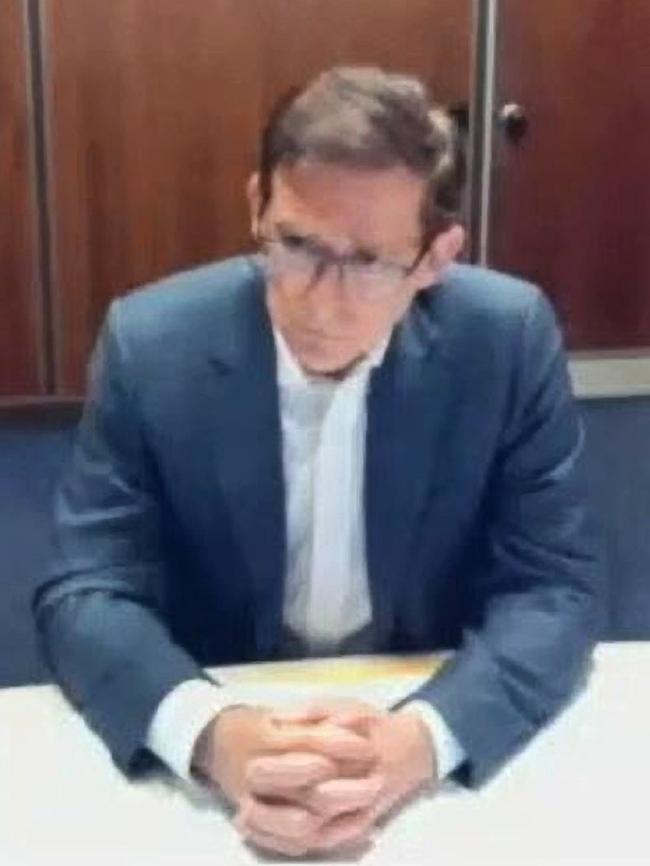
IBAC commissioner Robert Redlich told Byrne that his evidence may work against him.
Redlich said: “You’ve given a great deal of evidence now that we would in legal terminology say is against your interests. The commission’s view (is) that you’re to be commended for coming forth and speaking as openly as you have about your conduct and that of those around you.’’
When the 60 Minutes video emerged, the Victorian Right effectively imploded, with Albanese a chief beneficiary. Somyurek’s right-wing “moderate” faction had provided significant numerical support to Shorten and it was in Albanese’s interests for it to be broken down. There is no evidence Albanese was involved in the Somyurek takedown.
After national intervention was imposed on the Victorian branch, Shorten was left with a split Right grouping backed by unions including the AWU, health workers, the plumbers and the group of unions known as the Industrial Left.
Deputy federal leader Richard Marles, a factional player, is on the other side, backed by the shop assistants, transport workers, the Stephen Conroy forces and the Socialist Left faction. It is numerically stronger.
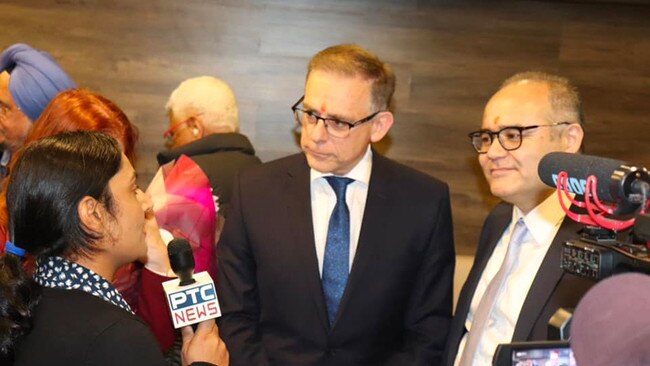
The net effect is that Albanese manages to suppress any Shorten ambitions and strengthen his hold on the leadership, which is under no real threat this close to a poll.
Albanese was way too slow to judge Byrne this week, despite Byrne having admitted to political corruption. When asked if Byrne should stand down from the party or be asked to resign, Albanese said IBAC should be allowed to run its course. That position seems now to have shifted to decision day at the end of the five weeks of hearings.
By Thursday, some commonsense had prevailed and Byrne had quit as deputy chair of the Parliamentary Intelligence and Security Committee. Albanese has positioned Labor as the party of integrity and it will be extremely difficult for Byrne to remain in the seat of Holt at next year’s election.
Despite everything, Byrne had his supporters this week including opposition legal affairs spokesman Mark Dreyfus, who described the war lord as a whistleblower. Dreyfus ran an inquiry into eliminating branch stacking in Victoria in 1998. Privately, many others were scathing of Somyurek and supportive of Byrne as a white knight who rescued the Victorian ALP. It didn’t – and doesn’t – matter to some that Byrne had admitted to the serious rorting of taxpayer funds.
“He f..ked Somyurek, nothing else matters,” one factional opponent said.
The 2020 expose by Nine’s Nick McKenzie has led to four state ministers quitting cabinet, the most recent collateral being Child Protection Minister Luke Donnellan, due to his links with Byrne’s factional activities. Donnellan and his family have spent their lives looking out for the underprivileged, perhaps an unintended victim of Byrne’s duplicity.
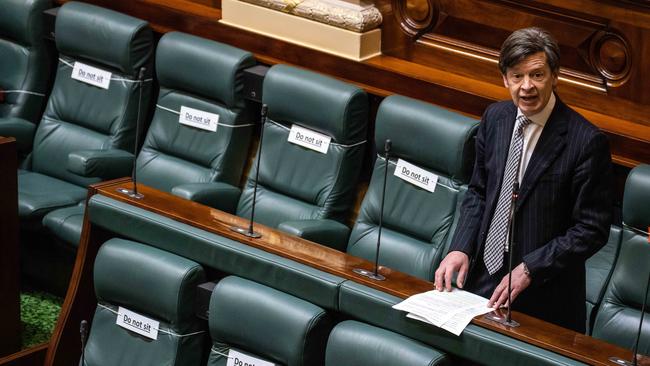
When Byrne was arguably at his most aggressive, he was competing factionally against then federal MP Alan Griffin and now Victorian Premier Dan Andrews.
I first covered Victorian politics in 1989 and it was accepted wisdom that by the end of the 1990s Andrews was a hard-headed numbers man for the Socialist Left faction in southeast Melbourne. As a former organiser and senior party official before entering parliament in 2002, Andrews has intimate knowledge of the way the Byrne forces conducted themselves.
Andrews spent the entire week dodging questions in and out of parliament about factionalism, what he knew and when.
IBAC has opted for a narrow examination of the factional system, using the moderates as a so-called case study. It’s clear that IBAC is not expert in factional politics, but failing to address other Labor groupings deprives it of vital balance and insight that would enhance the process. It is in the public interest.
Those looking for pieces of paper proving Andrews’ activities (whatever they were) will probably never find it, but a coercive public hearing would add significantly to both the evidence and backdrop to how people such as Byrne and Somyurek function.
IBAC can compel someone to appear if it has reasonable grounds that they have evidence/intelligence related to an investigation, which may be the case with Andrews. A person does not need to be under suspicion of wrongdoing to be summoned as a witness.
Redlich, a highly respected legal figure, told Byrne this week that the commission was not interested in the identities from the Socialist Left faction that Byrne dealt with in 2002 and “for a period of time thereafter”.
While Redlich asked whether people Byrne dealt with factionally at the time were MPs, he did not pursue their name or names, even though Byrne responded: “One was a member of parliament, commissioner, in particular.’’
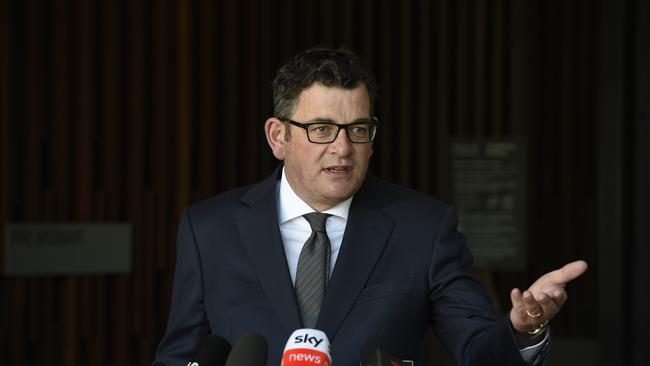
There is nothing legally improper with what Redlich did but, seen through the political prism, in my view it was a giant missed opportunity.
As The Australian reported this week, it was one of two missed opportunities. The second was on Tuesday when counsel assisting IBAC, Chris Carr SC, asked Byrne whether he was aware of methods being employed by other factions in southeastern Melbourne in recent years.
Byrne then referred to the Socialist Left and alleged branch stacking but Carr did not use the opportunity. There were no doubt political junkies across Melbourne who were screaming at their laptops when neither issue was pursued.
Andrews knows that there are few bigger turn-offs to ordinary voters than the ins and outs of factional politics. As long as he is able – and allowed to – weather the Byrne/Somyurek storm, he will be content. Factional politics matter, but not nearly as much as Covid-19 and the economy.
Practically, the factions are waiting for an imminent decision on the challenge by 12 unions and former government minister Marlene Kairouz to Labor’s national intervention in Victoria.
The court has the potential to undo the preselection of candidates in Victoria by the national executive and revert back to the traditional system, something Albanese would not welcome in the lead-up to the election.


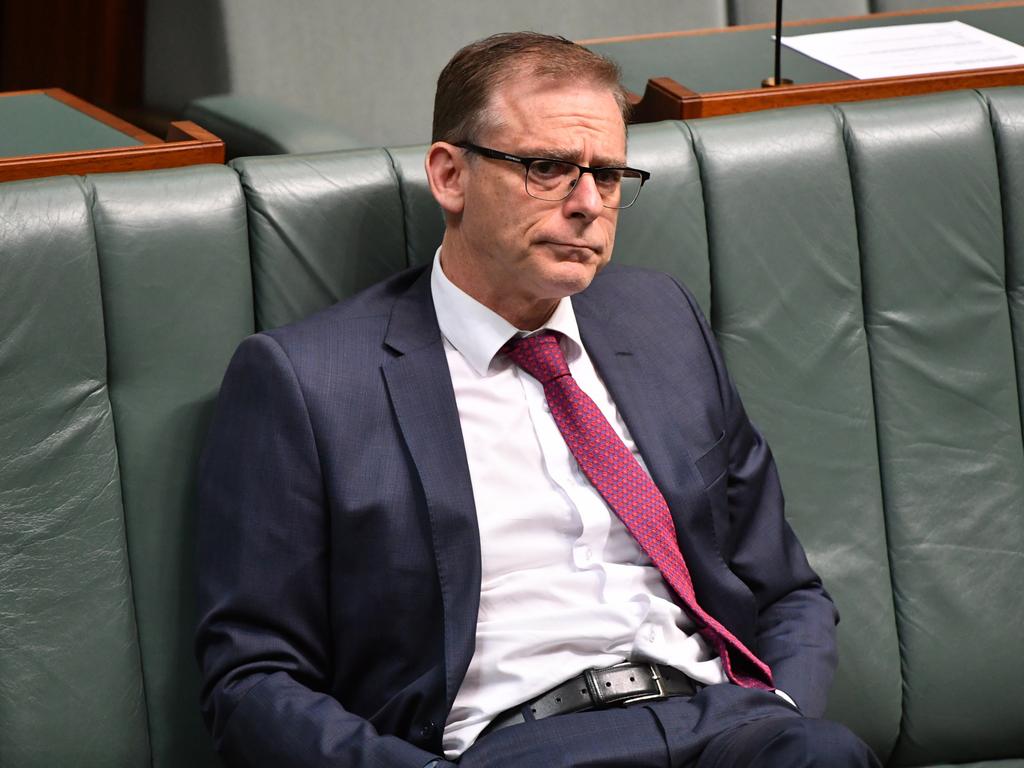
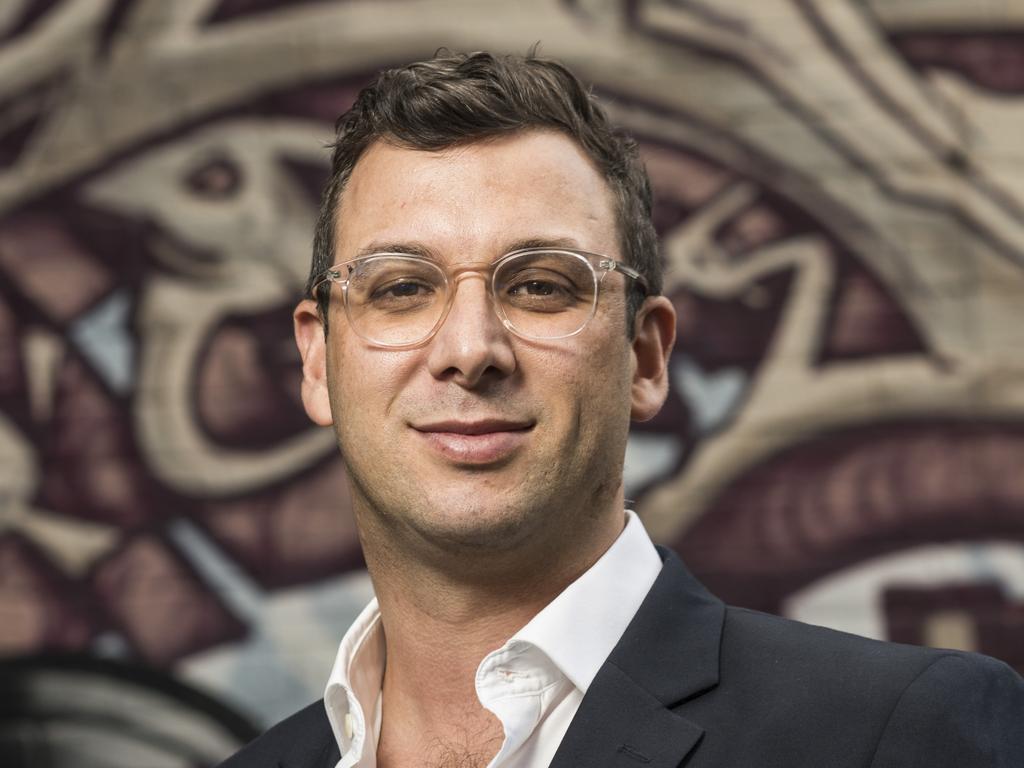



Anthony Albanese must have been deeply underwhelmed this week as word spread of the self-incriminating evidence of his backbencher Anthony Byrne at the Victorian anti-corruption commission.